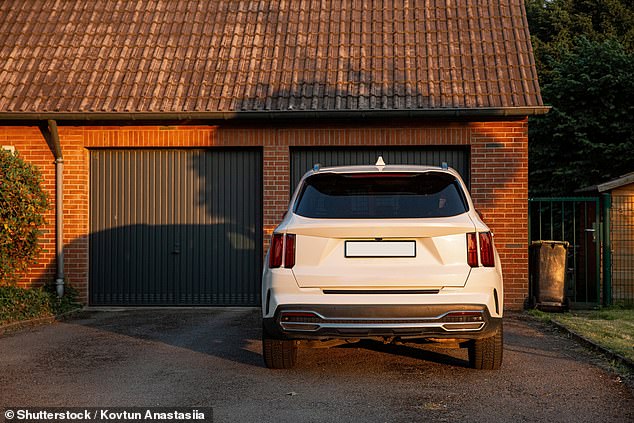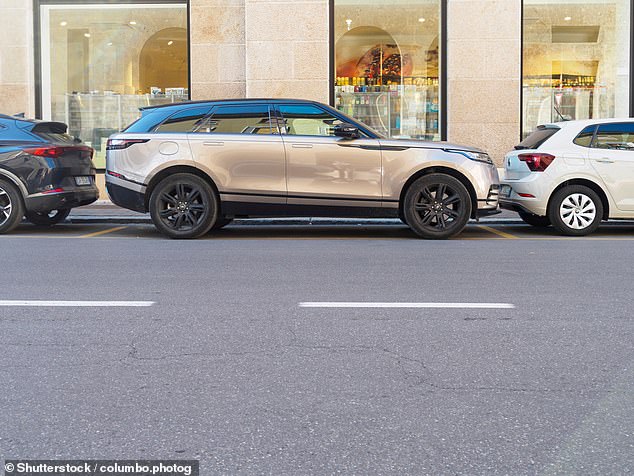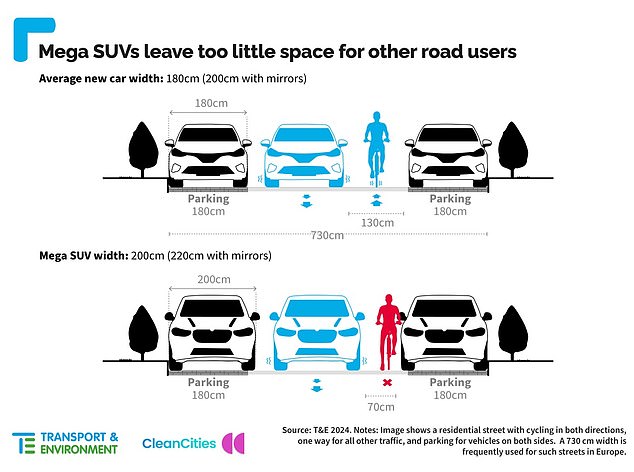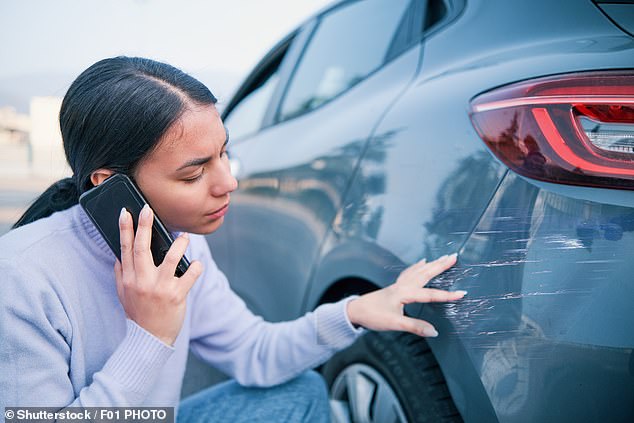Modern cars have grown in scale so much that drivers are struggling to park their motors at home, This is Money reveals.
New research from Aviva has discovered that one in six garage owners can’t use it for shelter for their vehicles because they simply won’t fit inside.
The insurer estimates that the dimensions of today models are 22 per cent larger than they were 20 years ago – something that’s led to a third of drivers saying they would be discouraged from buying a larger vehicle in the future.
A garage is usually seen as a luxury to have but, although more than a third of UK drivers have access to one, 42 per cent are choosing to park on their driveway instead.
For more than a fifth of drivers, the logic behind this counter-intuitive behaviour is that their garage is difficult to park in, with 16 per cent believing that their car is too big squeeze inside.
As a result, Aviva’s research of 1,344 motorists aged 17 and over found that two thirds of garage owners use the space primarily for storage instead.

More than a third of UK drivers have access to a garage, but 42%re choosing to park on their driveway instead. For more than a fifth of drivers their garage is too difficult to park in and 16% believe their car is too big
Martin Smith, Motor Claims Manager at Aviva, said: ‘It’s interesting to see that garage owners are favouring other locations for parking their car, which could in part be explained by the gradual increase in car size over the years.’
As cars continue to swell in size, drivers are finding it increasingly taxing to park in general – whether that’s on the road, in a car park, or on a driveway.
Supporting the view that bigger cars may be more difficult to park, two in five drivers responding to the poll said they have misjudged the distance to an obstacle, and a quarter thought the area they were trying to squeeze into was too small.
One in 10 said that they were still adjusting to their new car and its size.
But it’s not just cars getting bigger that are causing parking issues.
The research suggests that drivers are struggling to park more generally, with a third attributing this to a lack of confidence. Three in ten also complained of feeling pressured by other drivers and more than a fifth claimed past parking mishaps have impacted their ability.
Drivers now have access to a wealth of parking technology, with most showroom models sold with parking sensors, reversing cameras, 360 bird’s-eye-view screens and even self-parking systems.
However, this growing dependence on technology has left one in six have struggling to park without any of these aids.

One in 10 drivers said they are struggling to adjust to the size of their new vehicle

Transport & Environment says the wider cars are not only unable to park in on-street bays, they are leaving less room for other road users
What are you most likely to hit when parking?
Many drivers polled also admitted to coming a cropper when trying to park.
The research found that people are most likely to drive into a wall (16 per cent), a bollard or lamp post (both 11 per cent), a parked vehicle (10 per cent), a fence or bush/plants (both nine per cent) and a garage (eight per cent).
In almost half of the cases the damage was cosmetic, with dinged bumpers (39 per cent), cracked headlights (17 per cent) and dented wing mirrors (15 per cent) most common.
| Area or manoeuvre | % of drivers who find parking difficult in this place |
|---|---|
| Anywhere I have to parallel park | 20% |
| A car park they are not familiar with | 19% |
| A multi-story car park | 19% |
| On-street parking | 12% |
| Anywhere I have to bay park | 15% |
| A car park/ driveway | 7% each |
| In a garage | 6% |

8% of claims in 2024 were for bumps and scrapes but Aviva found that more than a third of drivers didn’t report this to anyone
Despite bumps and scrapes accounting for eight per cent of all claims in 2024, Aviva found that more than a third of drivers didn’t report this to anyone – a condition under most insurance policies and in some instances, a legal requirement.
Smith says: ‘Many of us will unfortunately experience bumps or scrapes on our cars in our lifetime.
‘If this happens, it’s important to let your insurer know.
‘Failing to do so could result in you being unable to make a claim, as this is often a condition in most insurance policies.
‘In some instances, you may also need to let the police know about your collision under the Road Traffic Act.’













